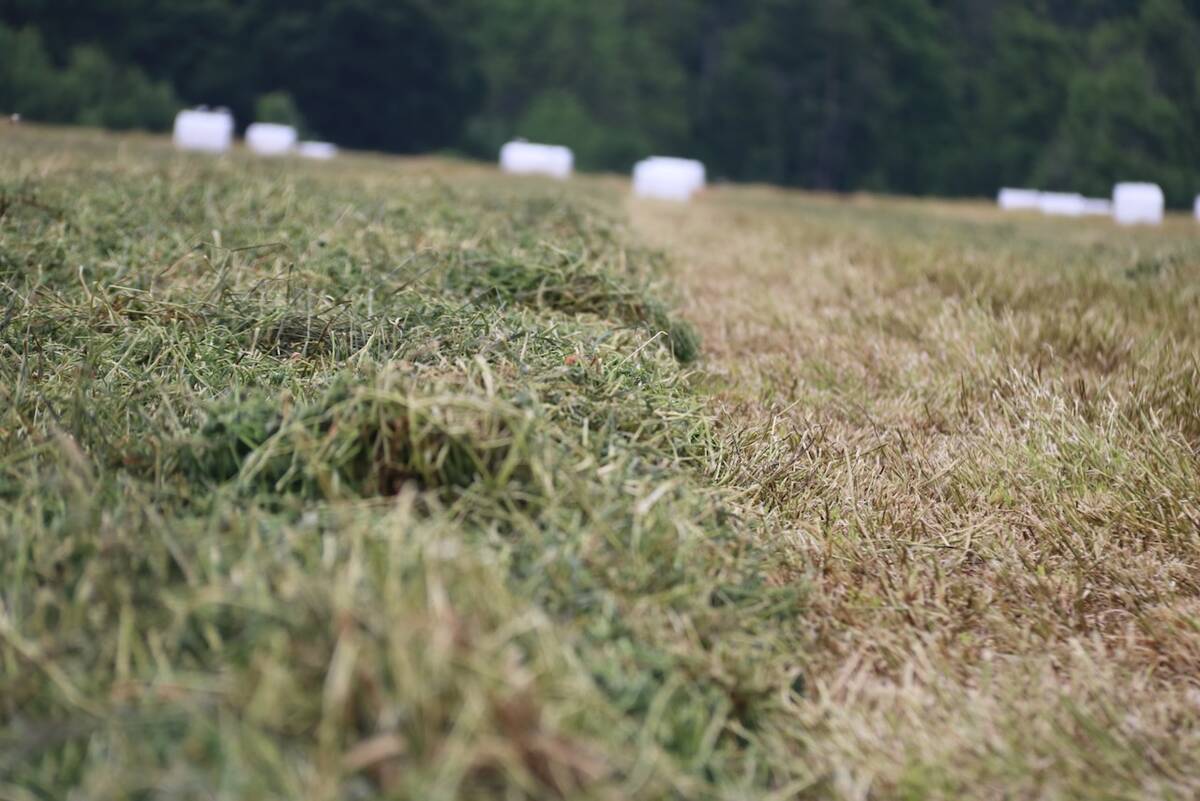The awareness of stress and the importance of dealing with it effectively has never been higher in Canadian agriculture, with lots of dedicated resources now available to farmers. Many ag conferences are also now addressing the important issue of how to foster mental health among Canada’s farmers.
An example of that is the “Optimizing Wellness on the Farm” presentation by Kim Moffat at CrossRoads 2023, a crop production conference held in Edmonton, Alta., in January.
Moffat has a background in psychiatric nursing and is a certified crisis counsellor with 30 years of counselling experience. She spoke to Grainews prior to the Crossroads 2023 conference about what kind of advice she has for farmers to help them manage stress.
Read Also

New high-performance forage training program to launch in 2026
A new Canadian Forage and Grasslands Asssociation high-performance forage program will be a resource for farmers, agronomists and others in the forage sector.
In Moffat’s view, early 2023 is the right time for farmers to have frank, honest conversations with themselves about the state of their mental health.
“Given the droughts over the past few years and the huge disruption COVID brought to everyone’s lives, it’s time we all ask ourselves, how are we really?” she said.
“Many of us suffered some significant losses and stress over the last few years. These losses included the deaths of loved ones, missed celebrations, disconnection from loved ones and the ongoing stress due to year after year of severe crop conditions. Many of us feel like there was no time to really process what was happening, and now we are seeing the results of that lack of processing and chronic stress play out in ourselves and our families.”
Mental health studies
Moffat noted two national surveys focusing on the mental health and well-being of producers (published by the University of Guelph in Ontario in 2016 and 2021) highlighted the need for Canadian farmers to make mental health a priority.
The surveys were part of research spearheaded by Briana Hagen and Andria Jones-Bitton that aimed to uncover sources of stress for farmers and the effects of those stresses. Other objectives were to increase the rate at which farmers seek out stress management resources as well as to help build better mental health services for those in agriculture.
The research found farmers were less likely to seek help for their mental health challenges compared with non-farmers. This was attributed to a number of factors, including the stigma around mental health, the belief that self-reliance is sufficient, the cost of counselling, a lack of flexibility with counselling services and perceptions that counsellors don’t understand how farming works.

Moffat said some of these potential barriers have been reduced significantly. For one, the availability of online and telephone-based help has increased dramatically — one silver lining of the COVID-19 pandemic.
Higher rates of alcohol consumption during the pandemic could have made matters worse for farmers dealing with stress, anxiety and depression. “It’s not uncommon for people to feel overwhelmed with the stress and trying to find someone to talk to can sometimes be a challenge when we are not thinking clearly,” said Moffat.
She acknowledged dealing with the multiple stressors and challenges in farming these days is far from easy. Moffat said part of the answer is for farmers to recognize so much about farming is outside of their control and to focus on things they are able to change.
“It all starts with producers taking stock of their lives and determining what is working and what needs to change,” she said. “Recognizing that many aspects of farming are not within our control, it’s important to notice how much time and energy we can needlessly spend worrying over things we have no ability to change.”
Warning signs
According to Moffat, raising self-awareness can help farmers see some of the warning signs of increasing stress. “By paying attention to their behaviors, feelings and thoughts, farmers can recognize when they need to increase or change their coping strategies,” she said.
Some of the warning signs you should watch for in yourself and others around you could include:
- Difficulty in concentrating on tasks
- Irritability
- Feelings of overwhelm and panic
- Drinking alcohol more often
- Overeating
- Using drugs to calm yourself or just feel normal
- Difficulty sleeping or not feeling rested after your normal sleeping duration
- Other physical symptoms such as stomach pain, chest tightness and headaches
Fortunately for farmers, there is a range of simple strategies available for improving day-to-day mental health. These include daily exercise and eating well (omega-3 fatty acids and many other supplements can aid in brain function and building resilience), relaxation activities such as getting a massage or taking a short drive to see a favourite view, and looking at how tasks might be better organized or delegated to others. Curtailing social media use may be a positive step for some. There are many other suggestions online — choose those you are relatively sure will help, or sound like they may be worth a try.
Moffat said regularly speaking with a trusted family member or friend about how things are going is also important to reduce stress and keep it manageable. Everyone has stress in their lives, and even regular short texts or emails to loved ones near and far can help us feel connected and better able to handle what the day might throw at us. In turn, offering what support we can manage to others can give us positive feelings related to accomplishment, connection and more.
Farmers who are struggling should also consider getting assistance from those who are trained and experienced in assisting others with improving their mental health. Moffat said she recognizes that stigma around mental health is still a barrier for many, but she highly encourages farmers to talk to professionals about their stress level, sources of stress and how to best manage stress.
“It is well worth the investment of time for farmers to take care of themselves, so that (they) can be resilient in the face of difficult times and enjoy all the fruits of (their) labour,” said Moffat.
“The inclusion of mental health-related presentations at most agricultural conferences is an excellent indication people are ready to get more information about stress and use that information wisely on a consistent basis.”
Moffat provides counselling services for farmers through in-person, online and telephone appointments. For more information, go to kmoffat.com. Other helpful resources for improved mental health include the Do More Agriculture Foundation and The Farmer’s Toolbox.
Business plans and mental health
Farm Management Canada published a mental health report in 2020 called “Healthy Minds, Healthy Farms: Exploring the Connection between Mental Health and Farm Business Management.”
The national research project highlighted how creating and following a written business plan is an effective coping mechanism that can help reduce stress for farmers. In fact, 88 per cent of the study participants who followed a written business plan for their farms reported the plan had contributed to their peace of mind.
At the same time, however, the study found that only 21 per cent of participants regularly followed a written business plan.
Farm Management Canada says a farm business plan should start with assessing the farm’s current business situation against the vision and goals of the farm and everyone involved. The benefits of this process include the following:
- It gets everyone excited about the journey ahead.
- It enables identification of different strengths and potential opportunities, but also areas of weakness and unknowns.
- In the face of inevitable challenges, it provides guidance that helps curb natural feelings of uncertainty and overwhelm.
- It allows positive coping mechanisms to surface during the process of revisiting the plan to go over options. These mechanisms include financial analysis to work out the best solutions, examining the most likely and worst-case scenarios and asking for help from farm business advisors.
Farm Management Canada has resources available for helping farmers create successful business plans, which you can find at fmc-gac.com.














